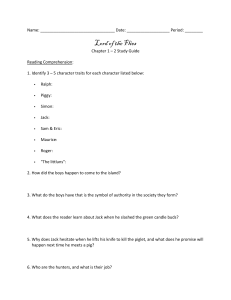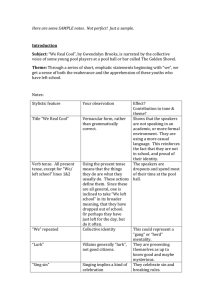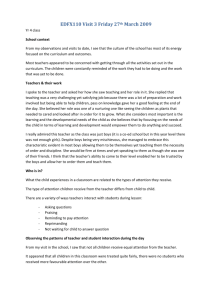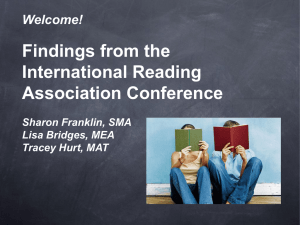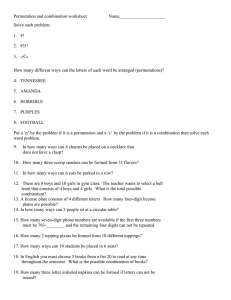We Real Cool
advertisement
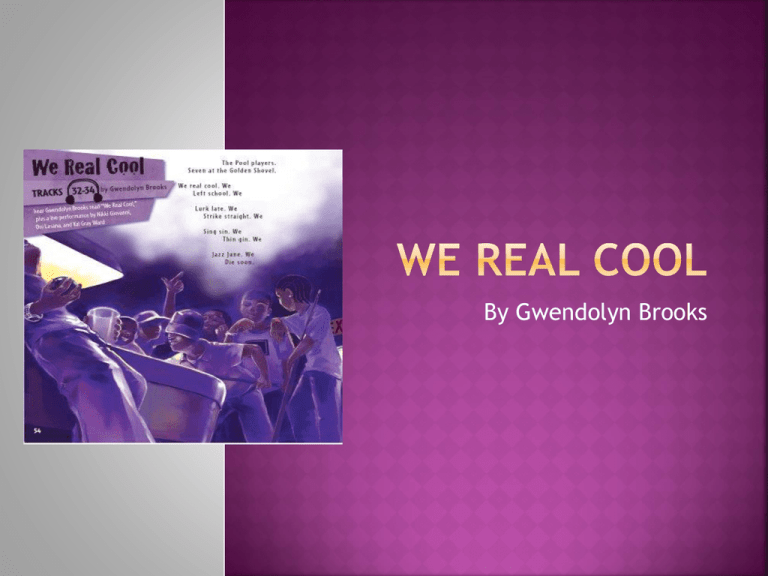
By Gwendolyn Brooks Gwendolyn Brooks is a black American poet. Born in Kansas on 7 June 1917 and educated in Chicago, United States of America. Published first volume of verse in 1945, called A Street in Bronzeville which focuses on the Black urban poor. Many of Brooks' works display a political element, especially from the 1960s and later, many reflects the civil rights activism of that period. Died 3 December 2000. The Pool Players. Seven at the Golden Shovel. We real cool. We Left school. We Lurk late. We Strike straight. We Sing sin. We Thin gin. We Jazz June. We Die soon. Subtitle and four couplets. Internal rhyme - words sink in, emphasis on words in middle (also alliteration). Pause after each rhyme word (full-stop). Each word only one syllable. Enjambment – uncontrollable recklessness of boys. Repetition of “We” at end of every line except last = “We”, reinforces idea that they have no sense of themselves (no individuality) “The Pool Players. Seven at the Golden Shovel.” Golden Shovel is a pool hall in the South Side of Chicago late 1950’s Irony – name of hall contrasts with aimless lives of boys Seven: seven boys, lucky number (Seventh day of Rest after Creation – boys do not complete work) Golden: symbolizes summer and youth HOWEVER, Shovel: relates to death “We real cool. We Left school. We” We real cool – think it’s cool to not care about their lives, happy-go-lucky lifestyle. Left school – not attend or dropped out, don’t care about education. “Lurk late. We Strike straight. We” Lurk late – boys stay out late on the streets and probably commit petty crimes. Strike straight – habit of getting into fights. “Sing sin. We Thin gin. We” Sing sin – wild life, actions not associated with the norm or they curse a lot. Thin gin – drink, abuse alcohol. “Jazz June. We Die soon.” June – month represents polite society and authority figures. Jazz – boys rebel against June. THUS they rather listen to music, they mock rules. Die soon – because of their reckless lifestyle they will possibly die. Diction is the words used by the poet. Reads like lyrics of a jazz tune, relaxed atmosphere. Black lingo of 50’s used, breaks rules of proper English (SLANG). NOT harsh and judgemental. Curious of boys’ thoughts. Thoughtful and sympathetic. Why did the poet write this poem? The poet tries to imagine what boys think of their own lives. Sympathizes and relates to them. Youth is exposed to such lifestyles and choices The poem explores troubled teenagers. By continuing a reckless and rebellious lifestyle you will eventually suffer the consequences. If you look for trouble you will find it. Society Death excludes certain people - Alienation Group identity - there is a bond between these boys. They want to be noticed, but also want to seem as if they don’t care – they are insecure. After you have pasted in the poem, turn to the next blank page. Draw a graphic depiction (pictures) of the activities the players take part in.
